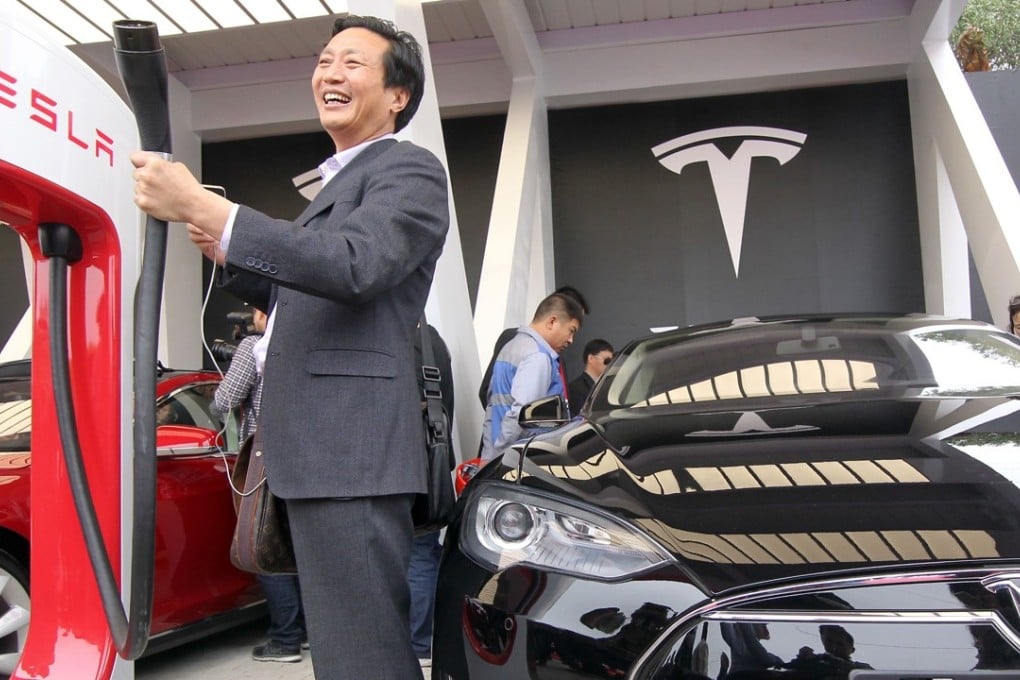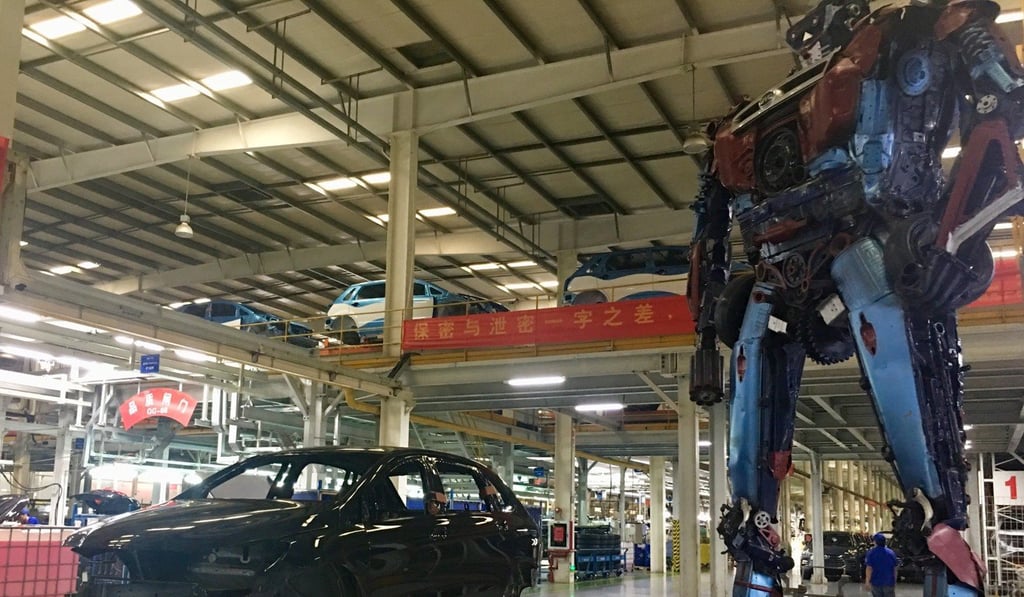Exclusive | ‘Made in China 2025’: world’s biggest auto market wants to be the most powerful maker of electric cars
- This is the seventh instalment of a series on China’s industrial strategy to advance manufacturing
- Electric vehicles are as much as about helping China upgrade its manufacturing value chain as they are for reducing pollution

At the assembly plant of China’s leading electric carmaker, BYD, in the southern city of Shenzhen – and under the watchful gaze of a giant Transformer statue made of car parts – an electric car rolls off the production line every 90 seconds.
While US maker Tesla often grabs the headlines (though not always for its cars), BYD and peers like Beijing Auto and Roewe are quietly selling enough electric vehicles (EVs) to make China the world’s largest market for both electric and conventional vehicles. In fact, sales of EVs in China reached 770,000 units last year – more than half of all new-energy vehicles sold globally.
Driving the explosive growth is a government desire to promote the country as a world leader in green vehicles, and in their next incarnation as “smart” cars, in part because of serious pollution problems at home but also as a broader strategy to become a technological power in keeping with its global economic clout.
That vision is embodied in the “Made in China 2025” (MIC2025) industrial strategy, an ambitious plan first unveiled in 2015 to have the country catch up with global leaders and become self-sufficient in 10 core technologies, including new-energy vehicles.

“To become a world leader in terms of technologies is not an easy job,” said Peter Chen, a Shanghai-based engineer with US car parts maker TRW. “Given the huge market size in China, EV is certainly a key industry where the government wants to develop its own players to be world leaders.”
Shenzhen’s all-electric bus fleet is a world’s first that comes with massive government funding
